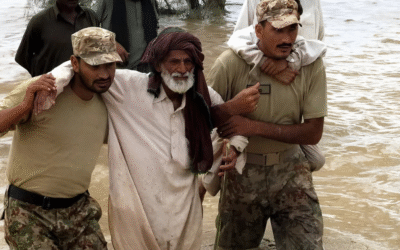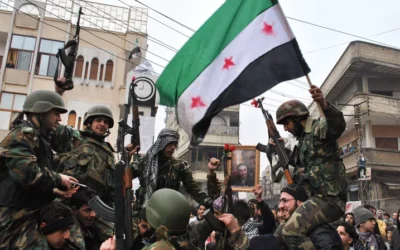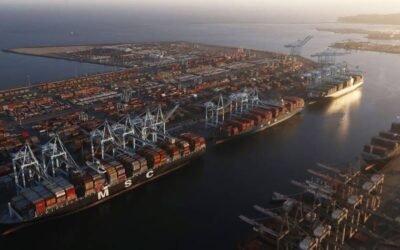The BRICS alliance—comprising Brazil, Russia, India, China, and South Africa—has expanded its membership to include countries like Egypt, Iran, Ethiopia, and the United Arab Emirates (UAE). The bloc is steadily evolving into a formidable geopolitical and economic force. With its expanding influence, BRICS is no longer a coalition of emerging economies, but a platform challenging the Western-dominated global order and seeking multipolarity in international decision-making.
As BRICS grows and transforms, Pakistan finds itself at a critical crossroads. Although Pakistan is not yet a member, strategically aligning its foreign policy and economic priorities with the blocs’ trajectory could offer significant benefits.
The BRICS expansion in 2024 was not symbolic, it was strategic. By welcoming new members with diverse geographic and economic profiles, BRICS has demonstrated its dedication to following key principles:
- Regional representation and inclusivity
- Stronger Cooperation between Global South
- Creating Financial alternatives to Western-dominated institutions like IMF and World Bank
This reconfiguration of BRICS presents a timely opening for Pakistan, whose economic and geopolitical ambitions are increasingly tied to Asia, the Middle East, and the Global South.
Understanding the Strategic Weight of BRICS
BRICS members collectively account for over 40% of the global population and nearly 30% of global GDP. With the addition of resource-rich and strategically placed economies such as Iran, Egypt, and the UAE, the bloc is acquiring deeper energy, trade, and transit potential.
Additionally, the creation of the New Development Bank (NDB) and ongoing discussions around a common BRICS currency indicate the group’s intent to reduce dependence on the US dollar and Western financial systems.
For Pakistan—a country struggling with recurring balance-of-payments crises, IMF dependencies, and a widening trade deficit—the emergence of BRICS, as an alternative platform for trade, investment, and infrastructure could represent a critical avenue for economic revival.
Pakistan’s Current Position: Neither In nor Out
While Pakistan is not yet a BRICS member, its geopolitical location, economic potential, and diplomatic ties—especially with China and Russia, two founding BRICS members—give it a natural edge. Moreover, the recent inclusion of Iran, a key regional ally and economic partner, significantly increases BRICS’ strategic value for Pakistan’s foreign policy and international engagement.
Pakistan’s non-membership of BRICS is complicated due to its tense relations with India, another founding BRICS member, and internal economic instability. Despite these hurdles, Pakistan must begin crafting a nuanced diplomatic strategy to engage with BRICS, not necessarily by seeking immediate membership but by strengthening bilateral and multilateral cooperation in areas of mutual interest.
Opportunities in Economic Diplomacy
1. Diversification of Development Finance
Pakistan has long relied on Western institutions like the IMF and World Bank for loans, often under stringent conditionalities. The New Development Bank (NDB), established by BRICS, offers an alternative financing mechanism that places greater emphasis on infrastructure, sustainability, and localised decision-making.
By engaging with the NDB—either through observer status or project-based partnerships—Pakistan can secure funding for key projects such as hydropower, transportation corridors, and digital infrastructure, without overexposure to IMF-style austerity.
2. Trade and Currency Agreements
The BRICS nations are increasingly promoting local currency trade arrangements, including bilateral swap agreements. With Pakistan’s foreign reserves running low, currency swap deals with China and Russia could ease dollar dependence and stabilize trade.
Moreover, BRICS expansion brings Pakistan closer to regional trade corridors such as the North-South Transport Corridor (via Iran) and the Eurasian rail and port networks, all of which could enhance Pakistan’s connectivity with Central Asia, the Gulf, and beyond.
3. Energy and Food Security Cooperation
New member nations of BRICS like Iran and the UAE are key energy players. Pakistan’s growing energy needs and its reliance on imported oil and gas make energy diplomacy a natural and critical area for cooperation. A structured engagement with BRICS energy forums could help Pakistan negotiate favourable long-term deals, invest in renewables, and explore regional energy grids.
BRICS is also focusing on agricultural resilience and food supply chain integration. Pakistan—an agrarian country—can benefit from joint research, technology exchange, and market access initiatives to enhance productivity and food security.
4. Digital and Technological Collaboration
As BRICS increasingly prioritises digital sovereignty, fintech, and AI collaboration, Pakistan must position itself as a participant in emerging tech frameworks. Engagement with BRICS tech forums and incubation networks could help Pakistani startups, software developers, and fintech players explore broader ecosystems, especially in non-Western markets.
Challenges Ahead and Way Forward
Despite the potential, several hurdles remain. Pakistan’s fiscal instability, domestic political volatility, and security concerns continue to drive investment away and erode external confidence. Moreover, India’s influential position in BRICS could pose diplomatic challenges, particularly if the forum becomes entangled in regional rivalries.
Still, diplomatic engagement with BRICS need not be framed as a zero-sum equation. Countries like Egypt, Saudi Arabia, and the UAE have all managed to engage deeply with both the West and the BRICS without sacrificing autonomy. Pakistan must adopt a pragmatic approach that secures its national interests in an increasingly multipolar world.
The expansion of BRICS is more than a symbolic reshuffling of international alliances—it is a structural shift towards a multipolar economic order. For Pakistan, this transition offers both a warning and an opportunity.
- The warning lies in being left behind in regional economic frameworks.
- The opportunity lies in leveraging diplomatic capital and geographic centrality to embed itself in new trade and finance architectures.
Through strategic engagement—whether through observer roles, project-based partnerships, or sector-specific collaboration—Pakistan can use the BRICS platform to reshape its economic diplomacy and secure a more autonomous, diversified path to growth. Now is the time for Islamabad to think beyond its traditional alignments and embrace a foreign policy rooted in adaptability, agency, and long-term vision.




























